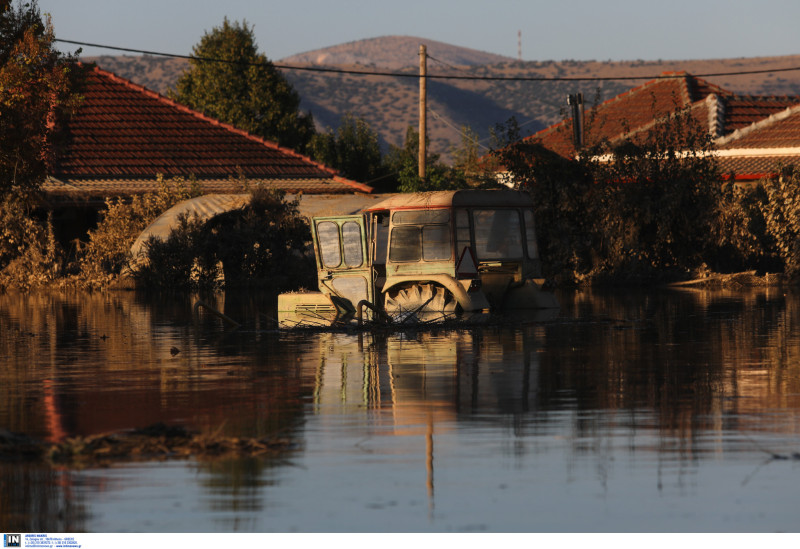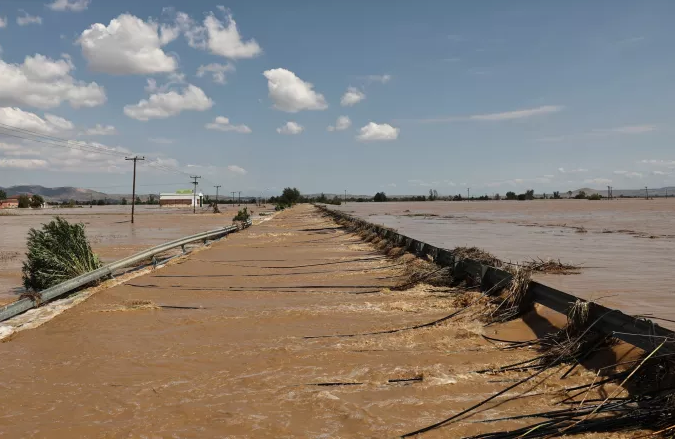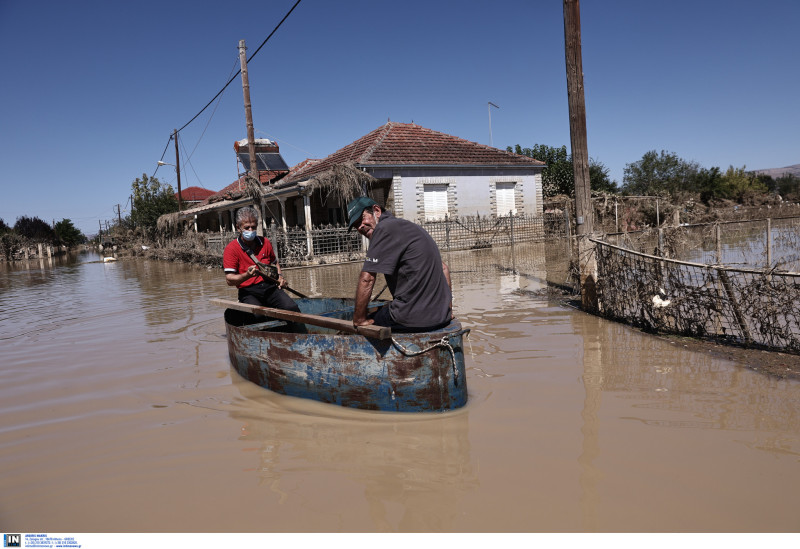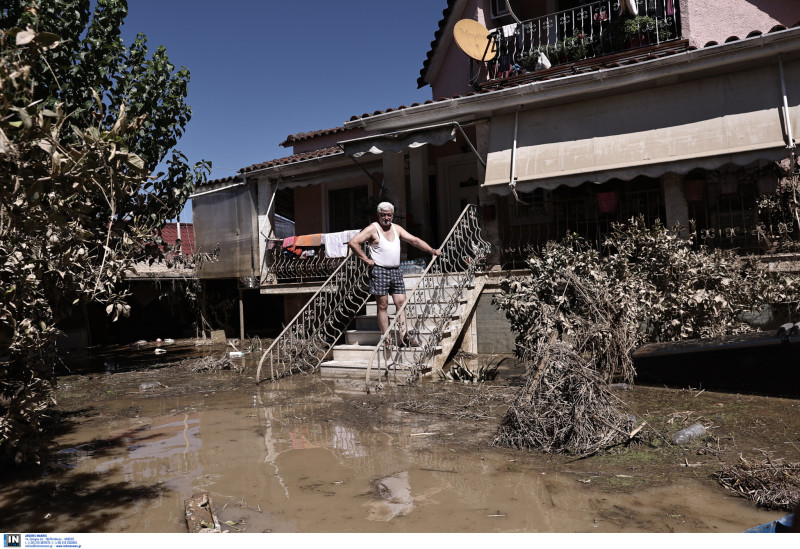Several villages remain without drinking water and electricity – The rescue crews, the Armed Forces and the Army continue to open roads in order to reach villages that remain “submerged” – The waters of Pinios are “suffocating” Tempi
Almost a week after the devastating passage of the bad weather Daniel, entire villages remain submerged under water in Thessaly with access in some cases by rescue teams still impossible, roads have disappeared under tons of mud and water while the dead animals that remain in the flooded areas posing a risk to public health and the spread of infectious diseases.
The level of Pinios continues to fall, but at a slow rate, approaching 6 meters and 60 centimeters, which is also the warning limit. On Tuesday night the water level was at 7 meters and 20 centimeters.
In addition to the huge damages to crops, businesses and livestock units, the bad weather left behind 15 dead, while an Austrian couple is still missing in Pelion. In total, 2235 citizens were released with the assistance of the Armed Forces in Thessaly.
Battle to remove mud and water
The rescue crews, the Armed Forces and the Army continue to fight in order to empty the water from the flooded villages in order to make them accessible again.
Agios Thomas in Larissa has been emptied while efforts to pump water continue in Giannouli and Nea Smyrni.
However, the problems outside Larissa, in the province of Agia, remain serious due to the lack of medicines and the difficulties of transporting vulnerable groups.
In Keramidi Trikala, the access of rescue crews is still impossible with the approximately 30 residents still trapped.
Villages in Pelion continue to be buried under water, such as Milina, Lefokastro, Platanias and Katigiorgis.
However, the problems with electricity and water supply are serious for another 24 hours. Power has not been restored in Pineias, while in Volos residents form daily queues to receive bottles of drinking water.
The waters of Pinios are “drowning” Tempi
At the same time, the Tempe Valley has turned into a lagoon since the waters flowing from Karditsa, Larissa and Trikala flow just 10 km from the Valley. The fear of new floods exists as the waters head towards Agia Paraskevi without reducing their intensity. Residents are sounding the alarm, saying there may be a dam in the area, but the rush of water is uncontrollable.
Efforts to open the National Highway Athens – Thessaloniki
Machines of the armed forces and the army are making efforts to reopen the Athens-Thessaloniki route, which remains closed, cutting the country in two. However, there is still a lot of mud and water making it impossible for vehicles to move for another day.
Desperate farmers and breeders
The unprecedented disaster in the Thessalian plain has brought despair to farmers and breeders who see the labors of a lifetime “sunk” in the muddy waters.
In Pineida, due to the overflow, 5,000 acres of cotton and corn have been destroyed.
Also, in the Holy Trinity of Larissa, 1,000 animals have been counted as dead while the area looks like a bombed out landscape. Livestock breeders warn that even if some of their animals were saved from the floods, they will eventually starve to death.
A total of 38,000 goats and sheep and 7,000 pigs have so far in ELGA.
Dead animals are a sanitary “bomb”.
At the same time, the dead animals that remain in the affected areas are a sanitary bomb for the development of diseases.
The assistant professor of Hygiene and Epidemiology of the University of Athens, Gikas Majorkinis, pointed out that the main risk in the first phase is gastroenteritis, due to the contact of water with microbes from the drains. For her part, the Deputy Minister of Health, Irini Agapidaki, reported that there are 46 cases of gastroenteritis and 24 cases of respiratory disease in the affected areas. Only six cases are hospitalized, with gastroenteritis.
The dead animals that are removed are transported to areas of Imathia and Arcadia where they will be incinerated in special furnaces, according to a statement issued by the Ministry of Agricultural Development and Food.
The Ministry of Health launched a hotline for information on public health issues. Interested citizens can contact the telephone number 213 2161123 – 9 daily, from 8 am to 8 pm and submit any question related to public health and hygiene issues.
Empty the Lame Hand
At the same time, the process of evacuating Koutsocheros in Larissa continues at a rapid pace, where the flood victims are expected to be transferred. Next stage is the cleaning and disinfection of the containers. At the same time, approximately 180 residents of Larissa have been transferred to hotels.
Source: Skai
I have worked as a journalist for over 10 years, and my work has been featured on many different news websites. I am also an author, and my work has been published in several books. I specialize in opinion writing, and I often write about current events and controversial topics. I am a very well-rounded writer, and I have a lot of experience in different areas of journalism. I am a very hard worker, and I am always willing to put in the extra effort to get the job done.














